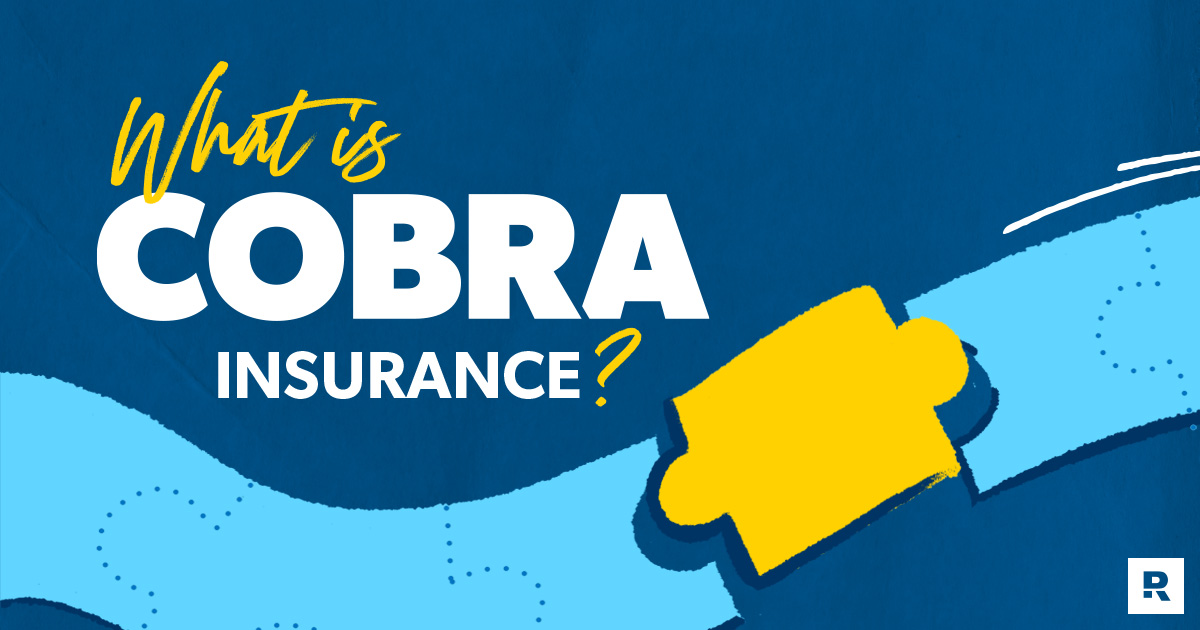Losing your job or experiencing a change in your family’s employment status can be stressful enough without the added worry of losing your health insurance. Fortunately, the Consolidated Omnibus Budget Reconciliation Act of 1985 (COBRA) provides a crucial safety net, offering the possibility of continued health coverage during periods of transition.
As a resource for navigating complex financial matters, sites like huythanh.org emphasize the importance of understanding your rights and options. This comprehensive guide will delve into the intricacies of COBRA insurance, clarifying eligibility, costs, and the critical decisions you’ll need to make.
What is COBRA Insurance?

COBRA, short for the Consolidated Omnibus Budget Reconciliation Act of 1985, is a federal law that mandates employers with 20 or more employees to offer continued health insurance coverage to their employees and their dependents who would otherwise lose coverage due to specific qualifying events. This temporary continuation of coverage is crucial in bridging the gap between jobs, preventing disruptions in healthcare access during times of uncertainty.
Qualifying Events for COBRA Coverage
COBRA coverage isn’t automatically granted; it’s triggered by specific qualifying events. Understanding these events is the first step in determining your eligibility. These events generally fall into two categories: events affecting the employee and events affecting the employee’s dependents.
Employee-Related Events:
- Termination of employment (excluding termination for gross misconduct).
- Reduction in hours worked that results in the loss of group health plan coverage.
- A change in employment status, such as a transfer to a position not covered by the employer’s plan.
Dependent-Related Events:
- Death of the employee.
- Divorce or legal separation from the employee.
- A dependent child losing their dependent status (e.g., reaching a certain age or getting married).
- A dependent child no longer being a qualifying child under IRS rules.
It’s essential to note that specific eligibility criteria might vary slightly depending on the employer’s plan and the details of the qualifying event. Always consult your employer’s plan documents or a qualified benefits professional for precise information.
Who is Eligible for COBRA?
Eligibility for COBRA is determined based on the qualifying event and the employer’s size and compliance with COBRA regulations. Generally, the following individuals are eligible:
- The employee who experienced a qualifying event.
- The employee’s spouse.
- The employee’s dependent children.
The precise definition of “dependent child” is defined by the employerâs plan and may adhere to IRS guidelines. Itâs important to understand the specific criteria outlined in your plan documents.
How Long Does COBRA Coverage Last?
The duration of COBRA coverage is typically limited to a specific period, usually 18 months from the date of the qualifying event. However, there are exceptions to this rule, and the duration can vary depending on the specific circumstances. For instance:
- 18 months: This is the standard duration for most qualifying events.
- 29 months: If the qualifying event is a disability, the coverage can be extended to 29 months.
- 36 months: In cases of death, divorce, or legal separation, coverage may extend to 36 months for a spouse or dependent children.
It’s crucial to understand the specific timeframe applicable to your situation, as missing the enrollment deadline can result in a lapse of coverage.
What are the Costs of COBRA Insurance?
COBRA coverage doesn’t come free. Employers are allowed to charge up to 102% of the premium cost for the group health plan. This means you’ll be responsible for paying the full cost of your premiums, plus an additional 2% administrative fee. This can be a significant financial burden, and it’s crucial to factor this into your budget.
Before electing COBRA coverage, carefully assess your financial situation. Explore alternative options, such as obtaining coverage through a spouse’s employer or purchasing an individual health insurance plan through the marketplace, to compare costs and determine the most financially viable option.
How to Enroll in COBRA Insurance
The enrollment process for COBRA typically involves several steps. Employers are legally obligated to provide you with a COBRA notice explaining your rights and options. This notice usually includes instructions on how to enroll and a deadline for electing coverage.
Receive the COBRA Notice: This notice is crucial, outlining your eligibility and the necessary steps for enrollment.
Complete the Enrollment Forms: Carefully fill out all required forms, ensuring accuracy and completeness.
Pay the Premiums: Prompt payment of premiums is essential to maintain continuous coverage. Late or missed payments can result in a lapse of coverage.
Notify the Plan Administrator: Submit all necessary paperwork within the designated timeframe to officially enroll in COBRA.
Timely action is crucial; missing the enrollment deadline can irrevocably forfeit your right to COBRA coverage.
Alternatives to COBRA Insurance
While COBRA offers a safety net, it’s not always the most financially feasible option. Exploring alternative coverage options is crucial before committing to COBRA.
Spouse’s Employer-Sponsored Plan: If your spouse has employer-sponsored health insurance, check the eligibility and cost of adding you and your dependents to their plan.
Health Insurance Marketplace (Affordable Care Act): The Affordable Care Act (ACA) marketplaces offer a range of health insurance plans from various insurers. Compare plans and prices to find a suitable option.
Medicaid or Medicare: Depending on your income and age, you might qualify for Medicaid or Medicare, providing government-subsidized health insurance.
Carefully evaluate the coverage offered by each alternative and weigh the costs and benefits before making a decision.
Understanding Your Rights Under COBRA
COBRA provides specific rights and protections to employees and their dependents. Understanding these rights is crucial to navigate the process effectively and ensure you receive the coverage you’re entitled to.
Right to Continued Coverage: COBRA guarantees the right to continued health insurance coverage during qualifying events.
Right to Information: Employers are obligated to provide clear and concise information regarding COBRA eligibility, costs, and enrollment procedures.
Right to Timely Notice: You’re entitled to receive timely notice of your COBRA rights and the required actions.
Protection Against Discrimination: COBRA protects you from discrimination based on your health status or other factors.
When COBRA Might Not Be the Best Option
Despite its importance, COBRA might not be the ideal solution for everyone. The high cost of premiums often makes it impractical for many individuals. Carefully consider the following factors before electing COBRA coverage:
- High Premiums: The cost of COBRA can be significantly higher than employer-sponsored plans.
- Financial Strain: The increased financial burden of COBRA premiums might negatively impact your overall financial stability.
- Availability of More Affordable Alternatives: Explore other options, such as the ACA marketplace or your spouse’s employer’s plan, before committing to COBRA.
Thorough research and cost comparisons are essential before making a decision about COBRA coverage.
Contacting the Appropriate Authorities
If you have any questions or concerns regarding COBRA coverage, you can seek assistance from several sources:
- Your Employer’s Human Resources Department: They can provide guidance on your eligibility and enrollment procedures.
- Your Health Insurance Plan Administrator: They can clarify details about your coverage and address any specific questions.
- The Department of Labor (DOL): The DOL enforces COBRA regulations and can provide assistance if you have disputes with your employer.
Don’t hesitate to reach out to these resources if you need clarification or support throughout the COBRA enrollment process.





